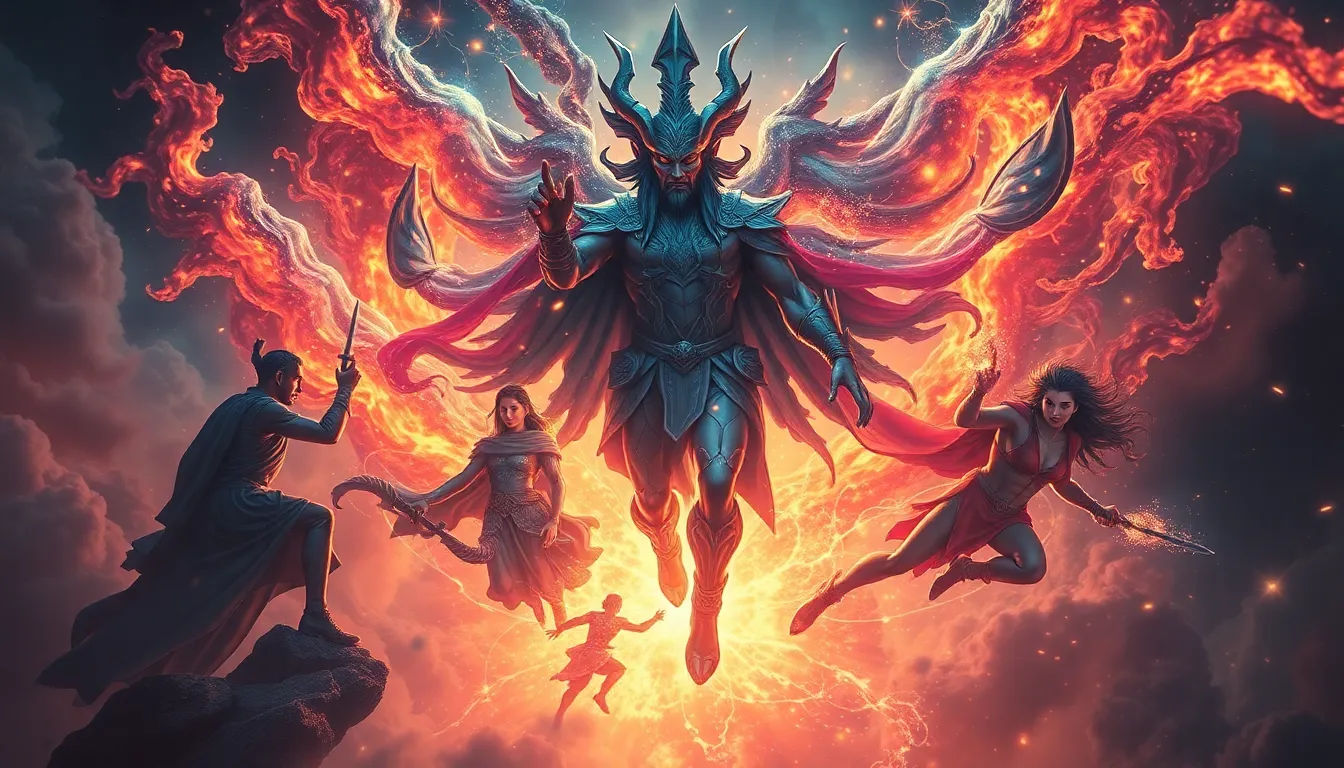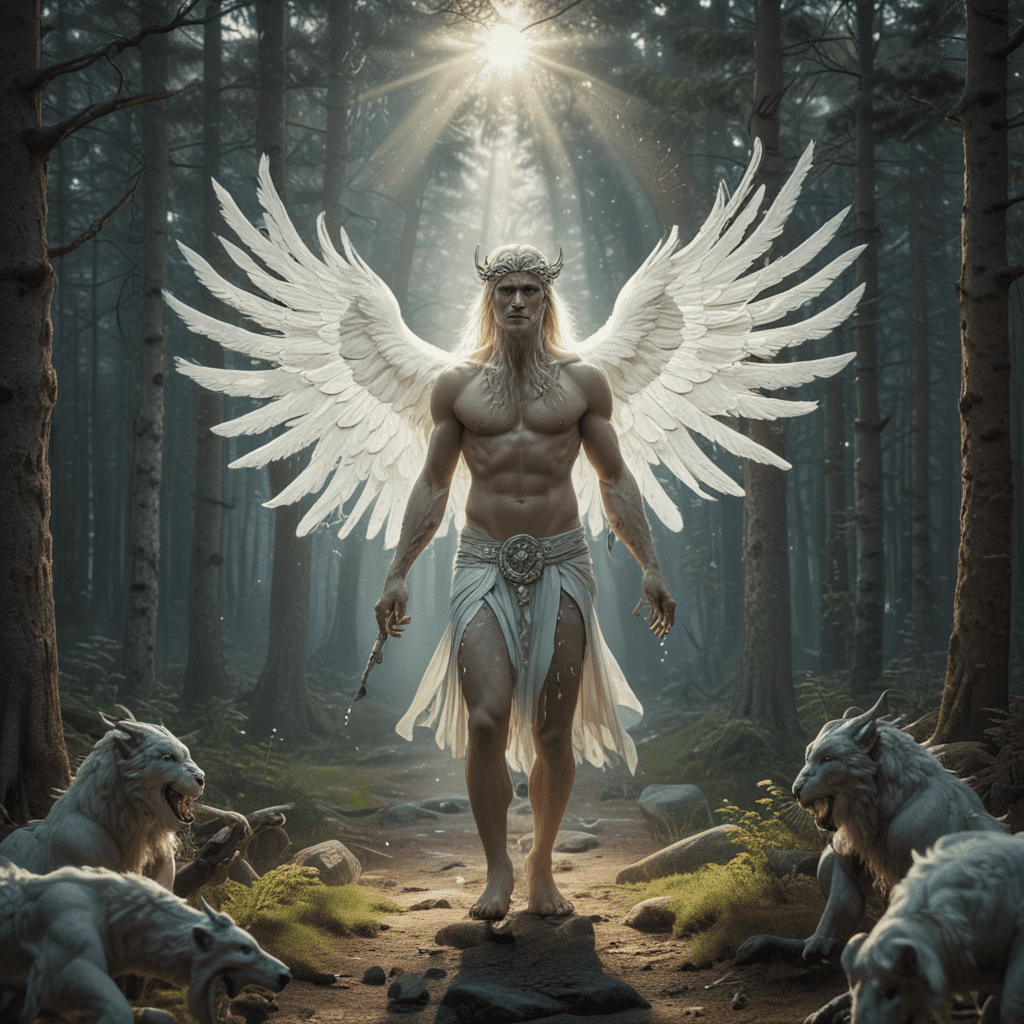Cultural Heroes: The Myths That Inspire Innovation
Introduction to Cultural Heroes
Cultural heroes are individuals who embody the ideals and values of a society, often achieving extraordinary feats that inspire others. These figures play a crucial role in shaping cultural narratives and influencing societal norms. The relationship between cultural heroes and innovation is profound; myths surrounding these heroes often encourage creativity and problem-solving, prompting individuals to push the boundaries of what is possible.
The Historical Context of Cultural Heroes
Throughout history, cultural heroes have emerged in various civilizations, each representing the values and aspirations of their people. From ancient mythological figures to modern-day icons, these heroes often reflect the ideals of bravery, intelligence, and resilience.
- Hercules: In Greek mythology, Hercules symbolizes strength and perseverance, overcoming seemingly insurmountable challenges.
- King Arthur: The legendary British leader represents chivalry and the pursuit of justice, inspiring countless tales of heroism.
- Mahatma Gandhi: A historical figure revered for his nonviolent approach to social change, Gandhi’s life story has become a modern myth of peace and resilience.
The Anatomy of a Cultural Hero: Traits and Characteristics
Cultural heroes often share several common traits that make them relatable and inspiring. These traits include:
- Bravery: The willingness to confront fears and take risks for the greater good.
- Intelligence: The ability to think critically and solve complex problems.
- Creativity: The capacity to innovate and envision new possibilities.
These characteristics not only define the hero but also serve as a blueprint for others aspiring to innovate and create change in their own lives and communities.
Myth vs. Reality: The Dual Nature of Cultural Heroes
Understanding the distinction between myth and reality is essential in studying cultural heroes. While many heroes are based on real individuals, their stories are often embellished or altered over time. This mythologizing process serves to enhance their significance in society.
For instance, figures like Robin Hood are celebrated for their heroic deeds, but the historical accuracy of their stories is often questionable. The allure of these myths lies in their ability to inspire and motivate individuals to strive for greatness.
Cultural Heroes in Literature and Folklore
Literature and folklore play a pivotal role in shaping the perception of cultural heroes. Stories passed down through generations often amplify the qualities of heroes, making them larger than life. This narrative tradition impacts how we view innovation and creativity.
Notable examples include:
- Odysseus: His journey in Homer’s “The Odyssey” illustrates resilience and cleverness, encouraging readers to embrace their challenges.
- Harry Potter: In modern literature, Harry represents the struggle against oppression, inspiring a generation to stand up for their beliefs.
These stories not only entertain but also convey valuable lessons about innovation and courage.
The Role of Cultural Heroes in Modern Innovation
In contemporary society, cultural heroes continue to emerge, influencing innovation across various fields. Figures such as Elon Musk, Malala Yousafzai, and Steve Jobs are often viewed as modern heroes due to their groundbreaking contributions and visionary ideas.
These innovators embody heroic traits that inspire others to pursue their dreams and challenge the status quo. Their stories motivate individuals to think outside the box and strive for excellence.
Cultural Heroes Across Different Cultures
A comparative analysis of cultural heroes reveals universal themes that transcend geographical boundaries. While the specifics may vary, the essence of heroism often revolves around ideals such as sacrifice, perseverance, and the pursuit of justice.
Examples include:
- Sun Wukong: The Monkey King in Chinese folklore symbolizes rebellion against tyranny and the quest for enlightenment.
- Nelson Mandela: A global icon for peace and equality, Mandela’s legacy resonates across cultures.
These figures illustrate that the myths surrounding cultural heroes can inspire innovation and change in diverse contexts.
The Psychological Impact of Cultural Heroes
Cultural heroes have a profound psychological impact on individuals and societies. They serve as sources of motivation, encouraging people to pursue their goals and overcome obstacles. The phenomenon of hero worship can drive societal change, fostering an environment where innovation thrives.
Studies have shown that identifying with cultural heroes can enhance personal resilience and creativity, leading to a more innovative mindset in both individuals and communities.
Challenges and Critiques of Cultural Hero Narratives
While cultural heroes can inspire, there are challenges and critiques associated with idolizing them. The potential downsides include:
- Unrealistic Expectations: Idolizing heroes can lead to unrealistic standards that may discourage individual achievement.
- Homogeneity: Celebrating a narrow range of heroes can marginalize diverse voices and perspectives.
- Historical Revisionism: The mythologizing process can obscure the complexities of historical figures, presenting them in a one-dimensional light.
It is vital to promote diverse representation in cultural narratives to foster a more inclusive understanding of heroism and innovation.
Conclusion: The Future of Cultural Heroes and Innovation
As we navigate the digital age, the concept of cultural heroes continues to evolve. New myths are being created, and the ways we celebrate innovation are changing. Emerging figures in technology, social justice, and environmental activism are reshaping our understanding of heroism.
The potential for new cultural heroes to inspire future generations remains immense. By embracing diverse narratives and fostering innovation, we can ensure that the legacy of cultural heroes continues to motivate and empower individuals to create a better world.



